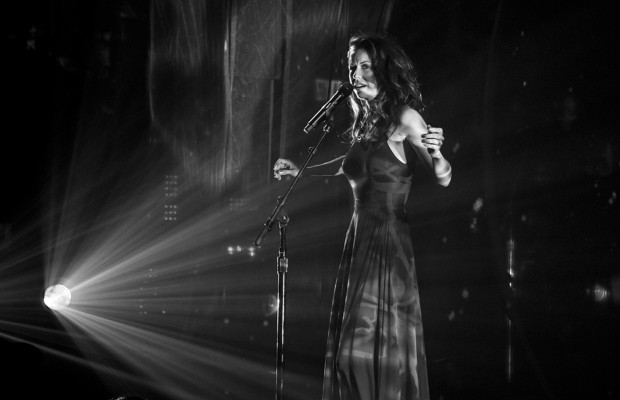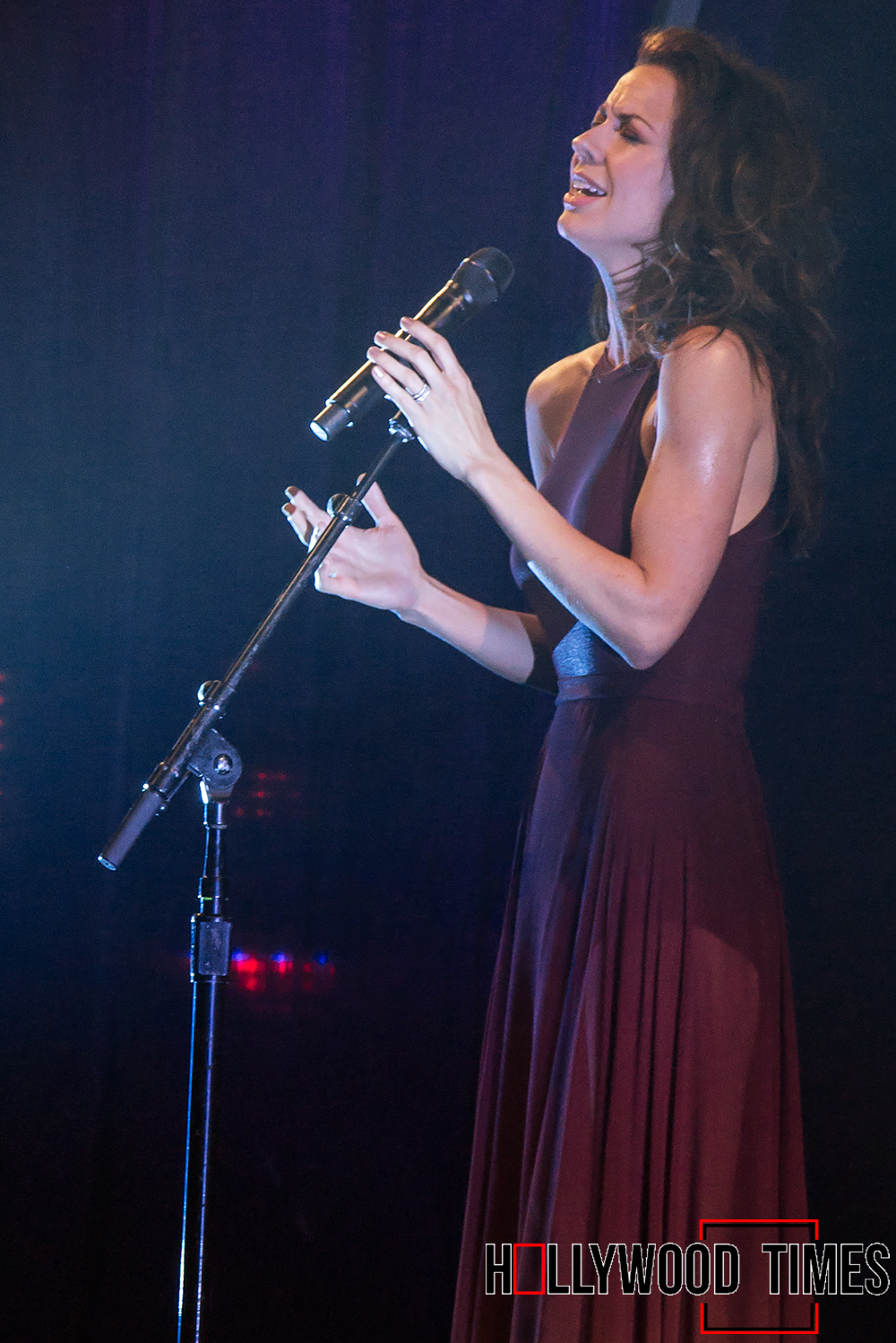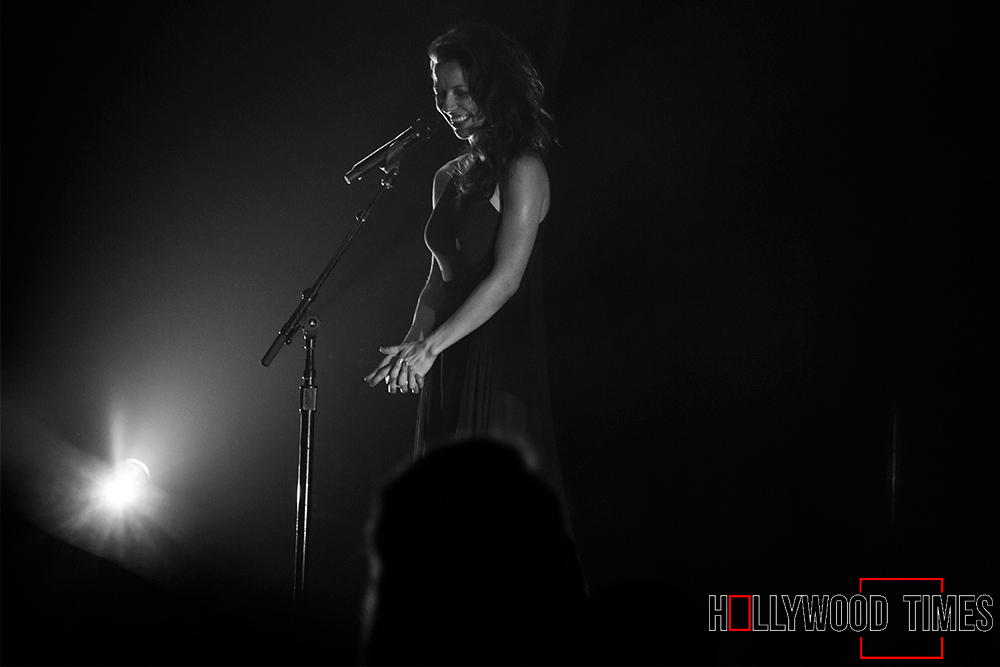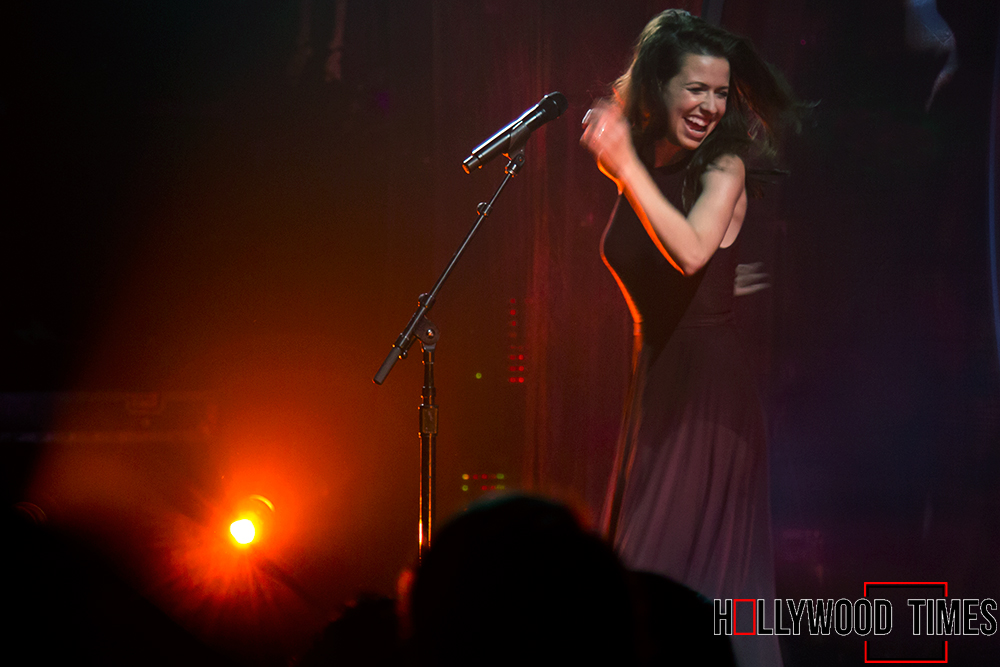Joy Williams: ‘I Learned I Had A Voice I Could Either Break Down Or Break Open’

If you don’t know Joy Williams as the vocalist to guitarist John Paul White in the four-time Grammy Award winning folk band, The Civil Wars, perhaps you’ve noticed her songs on Grey’s Anatomy, seen her open for Adele, or heard her voice on collaborations with artists like Chris Cornell, Matt Berninger, or Hayley Williams. Still doesn’t ring a bell? Then now is the time to catch up, because Williams is strong, solo, and coming out swinging.
Williams previewed her first solo LP in a decade, “Venus” (available on June 30th) –to an enthusiastic crowd that fully embraced her new music– at the El Rey Theater in Hollywood on May 19th. From the set list to the production, the show was elegantly constructed to tell the story of a woman who was dragged down by the difficulties of life only to be parachuted into a more powerful sense of self.
Williams aptly began the show at the start of her recent narrative, with “What a Good Woman Does.” The song is an open letter to her still-estranged ex Civil Wars band mate: “Everyone’s watching and you pick up and run/I could tell the truth about you leaving/But that’s not what a good woman does.”
Indeed, rather than divulging the details of their contentious split, she proclaimed loudly and as if to her own relief, “Hear me, I haven’t lost my voice without you near me,” with nothing but a hidden piano and synthetic strings as accompaniment.
With each note that expressed chilling clarity and tone, she brought depth and power. In a surprising resolution, she shed the burden of the breakup, “Can’t carry the weight of this War,” and nearly spoke the words, “I won’t do it anymore” to an utterly breathless auditorium.
As if letting your voice loose into silent space wasn’t scary enough, few songs could have left her as emotionally exposed. Breaking the stillness, a man in the audience gave her a “Woo!” Williams, recognizing the sign of support, smiled and opened her arms up to the audience.
She could have easily used this performance to showcase her talent and promote her album, but in this moment it was clear that she was going to take us completely into her world, and into those moments of joy and connection she was feeling on stage. From this point forward, each song she sang was like a robe she was taking off, making her increasingly more light, familiar and free.
Two keyboards, live and canned drums and supporting singers stood behind a projection screen, as if they were figures in Joy’s own dreams, with morphing digital imagery framing her sheer form. Williams gave a shout out to Seven Design Works for the vision and execution of the set, as if they needed the publicity. Seven Design Works, a creative concept and production design firm located in Santa Monica, works with artists from Paul McCartney to Bruno Mars to The xx, splitting their time between global-touring bands and emerging artists. Without hoopla, bells or whistles, they created an extravagant visual experience that served Williams’ new trance leanings, evoking themes of nature, mystery and femininity.
“The Dying Kind” showcased a transition that might have put off her folk fans, but opened her talent up to a fresh audience. Still, the electronics never competed with her voice, which physically and sonically took center stage, at once encircled by snowstorm flurries and aurora Borealis light emissions. Dancing through the storm, she took a break in the song to be moved by the music, swinging her sheer gown in and out of the spotlight. She might have looked like a little girl dancing alone in her mother’s gown if she didn’t also come across as so capable, mature and stunning. Blushing and twirling, she owned the stage.
While she reacted to and wrestled with the music, whistles and feedback from the crowd kept Williams’ smile spreading open. After a three minute applause break, it became clear that we were privileged guests in a very personal celebration of a dream being realized.
“I see some friends from high school,” Williams said, shading her eyes, “ Go Warriors class of ‘01! I love the requisite “Oww!” to everything.” She shared that many people who have been a part of her journey “from scouting boys to making music” were in the audience.
“It’s been a hell of a road getting here. So much has happened. Not just the ending of the Civil Wars, which was beautiful and hard and complex, but who am I now with a tiny human that’s on me all the time, with my marriage needing to get reprogrammed, and with my dad passing away. I learned I had a voice I could break down or break open and move forward with, and that’s what making this record has been for me.”
It was easy to feel like she was our friend too.
Williams then transitioned into a stripped-down cover of Duran Duran’s “Ordinary World” –anthem to anyone who’s watched their sense of self disappear before their eyes. Not only did it reflect her embrace of a harsh new reality, it may have topped the original in its heartfelt-ness.
“I identified so much with The Civil Wars that when it went away, I had to process the myth that I’d been a part of creating, free myself of that, and rediscover my own voice,” Williams explained. “Working through that really opened me up. In finding my voice I found myself again.”
Her exclamation point was “Woman (Oh Mama),” a tribal tune with rushing melodies, twinkling triangle sounds and warrior cries. Red hot and wild against a bloodshot backdrop, she claimed and proclaimed her own nature.
“I have moxy, damnit! Who says moxy? I just did. I feel more in my skin than I ever have and that is a good feeling, owning the mess and beauty and ripeness and fullness of what life is.”
Set List:
What a Good Woman Does
The Dying Kind
Before I Sleep
Sweet Love of Mine
Not Good Enough
The One That Got Away (Civil Wars song)
One Day I Will
Until the Levee
Ordinary World (Duran Duran cover)
Dust to Dust (Civil Wars song)
Woman (Oh Mama)
Photography by Rosemary Vega





















